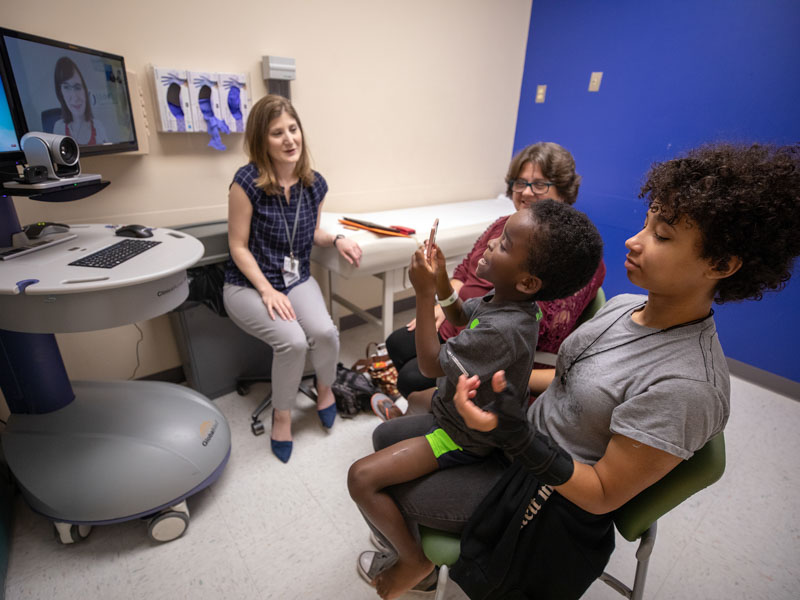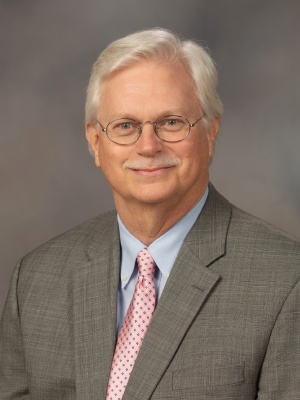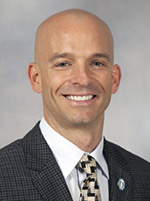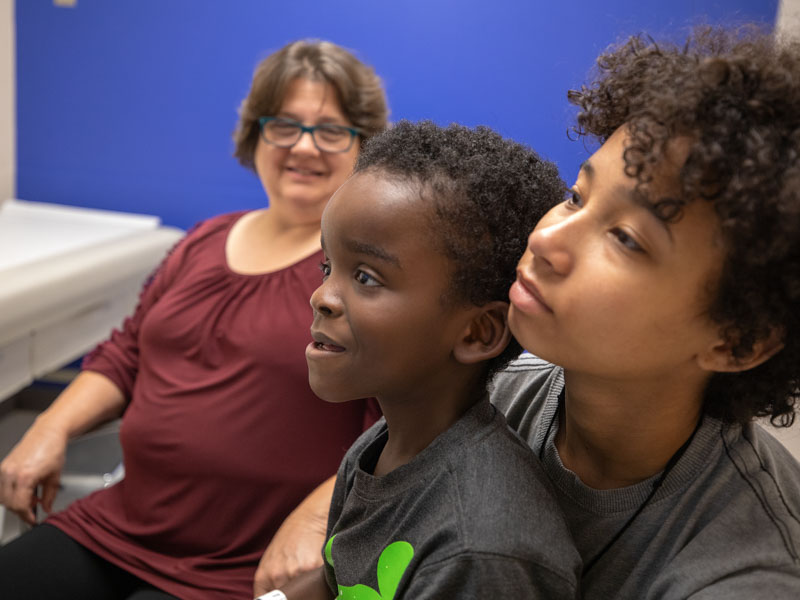HRSA bolsters Telehealth's mission: research, innovation, quality care

There’s another feather in the cap of the University of Mississippi Medical Center’s 15-year-old telehealth program, a national trailblazer in providing high-quality health care for those with little access to both primary and specialty services.
When UMMC’s Center for Telehealth in 2017 was designated a Telehealth Center of Excellence by the federal Health Resources and Services Administration, the national accolade included an initial $600,000 in funding, with the opportunity for an additional $1 million in grant funding per year for three years.
HRSA, however, has been so pleased with the Center’s innovation in research and delivery of care that it awarded $2 million in 2018, and this year will provide up to $3 million in funding, said Dr. Richard Summers, associate vice chancellor for research.
The Telehealth Center of Excellence designation is HRSA’s top telehealth award given only to programs at public academic medical centers. The Medical University of South Carolina also holds the honor.

“They are extremely happy with what we are doing,” said Summers, who serves as principal investigator for the grant. “They have tasked us with not simply doing more and bigger telehealth, but to be innovative.”
The Center for Telehealth allows UMMC providers to examine and treat patients using live, two-way audiovisual technology, store-and-forward technology, and remote patient monitoring programs on computers, tablets and smartphones. UMMC is filling a void by providing telehealth through partnerships with community-based hospitals, critical access hospitals, clinics, community mental health clinics, community health centers, businesses, schools and colleges.
Remote patient monitoring provides in-home care and health education to patients who cope with chronic diseases such as diabetes, heart failure and hypertension.
Specialty care offered includes pediatric services such as genetics, child development, forensic medicine, endocrinology, urology and mental health; and adult services such as cardiology, endocrinology, mental health, Alzheimer’s and dementia care, dermatology, congenital heart, hematology and oncology, and infectious diseases.
UMMC provides telemergency services in some of the state’s rural and critical access hospitals, connecting their emergency rooms in real time to emergency medicine physicians on duty in the Medical Center’s Emergency Department. Those on Mississippi’s state health insurance and employees in some corporate settings can take advantage of UMMC2You telehealth urgent care.
The Telehealth Center of Excellence accolade and funding come with high expectations. UMMC’s Center for Telehealth is serving as a national clearinghouse for telehealth research and resources, including providing technical assistance to other telehealth providers.
The Center has responsibility for creating a new knowledge base for telehealth through research, Summers said. The grant funding is helping UMMC build research infrastructure and become even more of a national leader in an emerging area of medical practice.
That work includes finding the most effective and efficient ways to deliver telehealth, a necessity in a state with many rural and underserved communities. And, the Center is offering training opportunities to providers at other health care organizations.

“We have to submit work plans to HRSA for objectives that we would like to accomplish based on federal priorities for telehealth,” said Center for Telehealth interim director Dr. Alan Jones, professor and chair of the Department of Emergency Medicine. “We are making sure that those work plans stay on track, and that we have good deliverables associated with them.”
That includes ensuring that, as a Telehealth Center of Excellence, UMMC provides a broad range of opportunities from the perspectives of education, research and clinical care, Jones said.
“One of the work plans that we’ve recently completed was a telemergency summit. We brought together thought leaders just before the meeting of the American Telemedicine Association in New Orleans,” Jones said. “There will be several white papers that will come out of that for a framework for best practices, and for what’s needed in future research and development of telemergency as a telehealth platform.”
HRSA officials recently visited Magee General Hospital to see firsthand UMMC’s telemergency operations there, Summers said. When telehealth-trained nurse practitioners stationed in Magee General’s emergency room need assistance, they utilize telehealth technology to provide care in tandem with the UMMC team.
Summers cited a study that showed a heart attack patient being seen at the UMMC Holmes County Emergency Department in Lexington, with treatment guided via telemedicine, has about the same path of care as a patient seen on the Jackson campus.
“By putting telemedicine in Lexington, do we change outcomes? Are less people being transferred to other hospitals? Is there better follow-up with the patients?” Summers said. “These are some of the things that HRSA is asking us to prove.”

The success of the Center for Telehealth hinges in part on connectivity to the Internet, which isn’t a given for many Mississippians in rural areas where cell towers are few and far between. The state ranks 49th nationally on connectivity to the Internet, and more than 30 percent of Mississippi residents lack access to a capable service provider, Summers said – making innovation in delivery of telemedicine that much more critical.
He’s heartened by the Federal Communication Commission’s $100 million “Connected Care” pilot program to support telehealth for low-income Americans, especially veterans and rural residents. The pilot would provide resources, connectivity, equipment and training to remotely broaden the reach of medical professionals located miles from patients in need.
FCC Commissioner Brendan Carr in July 2018 took part in a news conference at the UMMC Center for Telehealth offices in Ridgeland to officially announce the new program. He recalled a visit to the state where he learned of the Center’s successful Diabetes Telehealth Network pilot program that used remote patient monitoring to improve outcomes for rural diabetes patients.
“We were the inspiration for them to do Connected Care,” said Summers, who wrote a June 27 letter to Carr on behalf of the Medical Center to commend Connected Care as a program that will make a difference in the lives of Mississippians.
The FCC says telehealth has resulted in substantial savings, particularly in the management of chronic diseases that account for more than 85 percent of direct health care spending in this country. “Increasingly, access to health care is measured as much by access to broadband as proximity to a hospital,” the ATA said in a July 10, 2019 news release.
Since the Telehealth Center of Excellence designation, Summers said, the Medical Center’s telemedicine program has garnered a lot of national attention.
“We’re stretching the envelope to be innovative and to look at outcomes from a research perspective,” Summers said.


